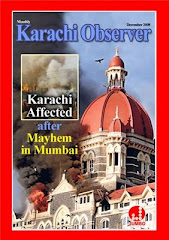
KARACHI: The ongoing spate of target killings in the city had so far claimed 31 lives, Sindh Cabinet which met here today under the chairmanship of Chief Minister Syed Qaim Alil Shah, was informed during discussion on obtaining law and order situation.
Briefing newsmen about the Cabinet proceedings, Sindh Minister for Information Shazia Marri said the Cabinet expressed concern over continued target killings in the city and said the Provincial Home
Minister Dr. Zulfikar Mirza will be holding a meeting with IGP, CCPO and heads of other law enforcing organizations to review the situation. She said the Chief Minister, too, has convened a meeting to be held today at 5 p.m. to solely focus on law and order. The Home Minister, she said, told the Cabinet that situation has remained sensitive since June 1 and those 31 killed so far belonged to various political parties.
She said that government effort is to assure strict monitoring in various areas through the meetings of Core Committee and help improve the law and order situation.
She said that situation had been quite disturbing in Landhi, Shah Faisal Colony and Malir areas where police deployment has been increased from 2000 to 3000 cops besides an increase in the number of Rangers as well. Shazia Marri said that the Cabinet was of the view that there is need to improve the political reconciliation process and for this purpose it was imperative that all the political parties which are part of Sindh Government take a united stand to control law and order. She said the Chief Minister asked all the political parties to strive together to overcome law and order situation.
Briefing newsmen about the Cabinet proceedings, Sindh Minister for Information Shazia Marri said the Cabinet expressed concern over continued target killings in the city and said the Provincial Home
Minister Dr. Zulfikar Mirza will be holding a meeting with IGP, CCPO and heads of other law enforcing organizations to review the situation. She said the Chief Minister, too, has convened a meeting to be held today at 5 p.m. to solely focus on law and order. The Home Minister, she said, told the Cabinet that situation has remained sensitive since June 1 and those 31 killed so far belonged to various political parties.
She said that government effort is to assure strict monitoring in various areas through the meetings of Core Committee and help improve the law and order situation.
She said that situation had been quite disturbing in Landhi, Shah Faisal Colony and Malir areas where police deployment has been increased from 2000 to 3000 cops besides an increase in the number of Rangers as well. Shazia Marri said that the Cabinet was of the view that there is need to improve the political reconciliation process and for this purpose it was imperative that all the political parties which are part of Sindh Government take a united stand to control law and order. She said the Chief Minister asked all the political parties to strive together to overcome law and order situation.























